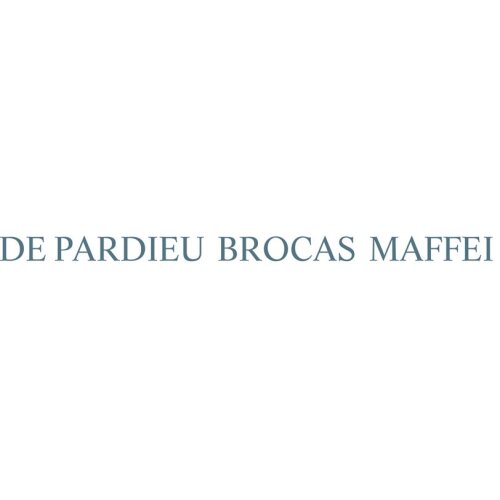Best Structured Finance Lawyers in France
Share your needs with us, get contacted by law firms.
Free. Takes 2 min.
Or refine your search by selecting a city:
List of the best lawyers in France
About Structured Finance Law in France
Structured Finance in France encompasses a range of complex financial transactions involving the pooling and repackaging of financial assets, typically for large-scale funding needs. These structures often include securitization, syndicated loans, collateralized debt obligations, and other asset-backed financing solutions. French law on Structured Finance is shaped by both domestic regulations and European Union directives, ensuring transparency, investor protection, and financial market stability. Since France is a major financial center in Europe, its laws are comprehensive and designed to accommodate various types of structured finance instruments and participants.
Why You May Need a Lawyer
Structured Finance transactions involve complex legal, regulatory, and contractual arrangements between multiple parties. You may require legal assistance in several scenarios, such as:
- Drafting or reviewing agreements for securitizations, syndicated lending, or asset-backed securities
- Navigating compliance with French and EU financial regulations
- Structuring cross-border deals involving French entities or assets
- Addressing tax implications and optimizing transaction structures
- Managing risk allocation, credit enhancements, or investor protections
- Resolving disputes or default situations among stakeholders
- Securing proper registration and disclosure with relevant authorities
- Protecting confidentiality and managing ongoing servicing arrangements
Local Laws Overview
Structured Finance in France operates under a blend of local civil and commercial laws, financial regulations, and EU directives. Key aspects of local law include:
- Securitization Law - France has a dedicated legal framework for securitization, chiefly through Fonds Communs de Titrisation (FCT) and Sociétés de Financement de l’Habitat (SFH). These entities allow the transfer and restructuring of assets in a secured manner.
- Regulatory Oversight - The Autorité des Marchés Financiers (AMF) and the Autorité de Contrôle Prudentiel et de Résolution (ACPR) supervise market and prudential behavior, registration, and compliance.
- Bankruptcy and Insolvency - Specific rules apply around the treatment of collateral, the bankruptcy remoteness of securitization vehicles, and the enforceability of pledges or transfers in insolvency scenarios.
- Taxation - French tax law governs the treatment of originators, investors, and special purpose vehicles, addressing withholding taxes, VAT, and transfer duties.
- EU Regulations - European rules, such as the EU Securitization Regulation, impose requirements on disclosure, risk retention, and transparency.
Frequently Asked Questions
What is structured finance?
Structured finance refers to complex financial arrangements that pool and repackage financial assets, typically to raise large amounts of capital. This is often done through securitization, asset-backed lending, or syndicated loans.
What types of assets are typically used in structured finance transactions in France?
Common assets include mortgages, auto loans, trade receivables, consumer credits, and leasing contracts. French law provides frameworks for pooling these assets and issuing related securities.
Who regulates structured finance activity in France?
The Autorité des Marchés Financiers (AMF) oversees the financial markets and investor protections, while the Autorité de Contrôle Prudentiel et de Résolution (ACPR) supervises banks and insurance companies involved in these activities.
What is securitization, and how is it regulated in France?
Securitization involves repackaging financial assets into tradable securities. In France, securitizations are structured through funds like the FCT and follow detailed rules regarding creation, management, and investor protection.
What are common legal risks in structured finance?
Typical risks include regulatory non-compliance, default or bankruptcy of parties, enforceability of security interests, and tax liabilities. Professional legal support helps identify and mitigate these exposures.
Is cross-border structured finance possible with French assets?
Yes, many transactions involve French originators or assets with international investors. However, cross-border deals must address French law requirements and possible conflicts with foreign laws.
Do structured finance transactions require specific documentation?
Yes. Detailed contracts, asset transfer agreements, disclosure documents, and servicing arrangements are required. Legal review ensures documents meet all legal and regulatory standards.
How does French bankruptcy law affect structured finance?
French law provides for the bankruptcy remoteness of certain vehicles and assets, aiming to protect investors even if the originator becomes insolvent. However, detailed structuring and legal advice are needed to achieve this protection.
Are there special tax considerations?
Yes, taxation varies by type of structure and participants. Issues such as withholding tax, VAT, and transfer pricing must be analyzed for each transaction. Engaging a lawyer ensures compliance and optimization.
How can I find the right structured finance lawyer in France?
Look for lawyers or law firms experienced in banking, capital markets, and structured finance - particularly those with familiarity with both French and international regulations. Professional associations and local bar councils can also provide recommendations.
Additional Resources
For those seeking more information or considering structured finance transactions in France, consider the following resources:
- Autorité des Marchés Financiers (AMF) - Financial market regulator providing guidance and official notices on structured finance
- Autorité de Contrôle Prudentiel et de Résolution (ACPR) - Prudential regulator for banks and insurance entities
- Banque de France - Central bank, a source for financial stability information and oversight practices
- Notarial bodies and professional legal associations - For additional legal background and lawyer referrals
- European Securities and Markets Authority (ESMA) - For EU-wide regulatory updates and technical standards
Next Steps
If you are considering or involved in a structured finance transaction in France, follow these steps:
- Clearly identify your objectives and the specific assets or funding needs involved
- Gather all relevant documentation regarding your financial assets and transaction partners
- Consult specialized legal counsel with expertise in French structured finance law
- Collaborate with your legal advisor to structure the deal, ensuring compliance with both French and EU requirements
- Review all contracts and disclosures before finalizing any commitments
- Stay informed of regulatory updates and seek ongoing legal advice for transaction management and dispute resolution
Lawzana helps you find the best lawyers and law firms in France through a curated and pre-screened list of qualified legal professionals. Our platform offers rankings and detailed profiles of attorneys and law firms, allowing you to compare based on practice areas, including Structured Finance, experience, and client feedback.
Each profile includes a description of the firm's areas of practice, client reviews, team members and partners, year of establishment, spoken languages, office locations, contact information, social media presence, and any published articles or resources. Most firms on our platform speak English and are experienced in both local and international legal matters.
Get a quote from top-rated law firms in France — quickly, securely, and without unnecessary hassle.
Disclaimer:
The information provided on this page is for general informational purposes only and does not constitute legal advice. While we strive to ensure the accuracy and relevance of the content, legal information may change over time, and interpretations of the law can vary. You should always consult with a qualified legal professional for advice specific to your situation.
We disclaim all liability for actions taken or not taken based on the content of this page. If you believe any information is incorrect or outdated, please contact us, and we will review and update it where appropriate.
Browse structured finance law firms by city in France
Refine your search by selecting a city.
















